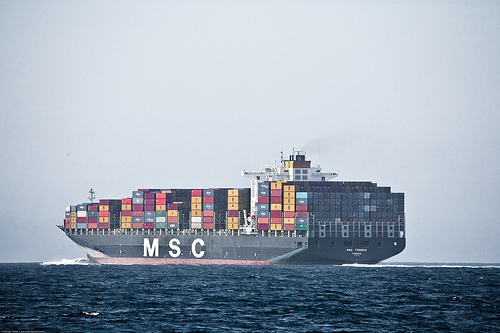Exporting Gets a Charge
 With sales sluggish early this year, Ariel Ozick took a gamble.
With sales sluggish early this year, Ariel Ozick took a gamble.
The CEO of a Newark, Del., search marketing firm, Ozick began looking for new clients in Ireland, England, Scotland and Australia. Though he recognized the challenges of working abroad, which include everything from complying with international tax laws to the vagaries of currency exchanges, Ozick needed the new business.
There have already been some bumps. While the 16-nation euro-zone, which includes Ireland, began pulling itself out of the recession in the third quarter, the U.K.’s economy shrunk 0.4%. Still, there has been enough new business for Ozick’s firm, Wired Rhino, that the CEO feels he’s achieved his goal. “We wanted to diversify our revenue streams and be less dependent on one country’s economy,” he says.
With the U.S. economy sputtering forward in fits and starts, some small-business owners are looking abroad for growth opportunities. Entrepreneurs like Ozick are not only working with longtime exporting hubs, but also with countries with growing economies likes India and China. What’ s more, they are getting a helping hand from agencies like the Export-Import Bank of the United States, which since the downturn has increased trade assistance.
Under the bank’s enhanced programs, U.S. small businesses with annual export credit sales of $7.5 million or less are now eligible for coverage under a program that protects small-business owners in the event of buyer default. Generally, this insurance covers 95% of an invoice, at a cost of roughly 55 cents per $100 of shipment for 60-day repayment terms. (The previous ceiling for this benefit was $5 million.)
The bank also recently opened its working capital guarantee program to indirect U.S. exporters. These are U.S. companies that produce goods or services that are sold to other U.S. companies, and are subsequently exported. Previously the program was open only to companies that export U.S. goods directly. Under the working capital guarantee program, Ex-Im Bank guarantees 90% of a bank loan, including principal and interest. “As the economy changes and world trade changes, we’re always adjusting the products to make exporting more conducive to the U.S. marketplace,” says Ex-Im Bank Chairman and President Fred P. Hochberg.
One stumbling block for business owners has been awareness. Even though programs are available to help raise funds, “the American government has been slow to publicize supports,” says Neal Asbury, the founder of the Ft. Lauderdale, Fla.-based food-service equipment supplier Greenfield World Trade. “Even China’s equivalent to U.S. agencies that oversee exports does a better job at promoting greater trade,” he says.
He should know. Asbury has been shipping commercial refrigerators, ice makers and dishwashers to countries within Asia since the late 1980s. However, it still took him more than a decade to learn that the 75-year-old Ex-Im Bank and its working capital program existed. In fact, of the 6,911 U.S. commercial banks insured by the Federal Deposit Insurance Corporation, only about 47 banks have an active relationship with Ex-Im Bank, says Hochberg. Further, just 10 insurers participate in Ex-Im Bank’s specialized programs, he says. To raise the Bank’s profile, “I’m going coast to coast and hit eight cities and try to reach as many outlets as we can; we’re revamping the web site and we’re trying to sign up more banks,” Hochberg says.
In the meantime, owners have to negotiate credit terms with reluctant foreign manufacturers. It can be very challenging, says Asbury. “Here you are promising your customers that they’ll receive their orders saying ‘don’t worry’ and there you are promising the factory that you’ll pay, again, saying ‘don’t worry.’”
Asbury’s company now exports to more than 100 countries including Japan, Mexico, China and India. “If I knew then what I know now, my life would have been much more pleasant,” Asbury says. “I would have achieved greater success earlier on.”
